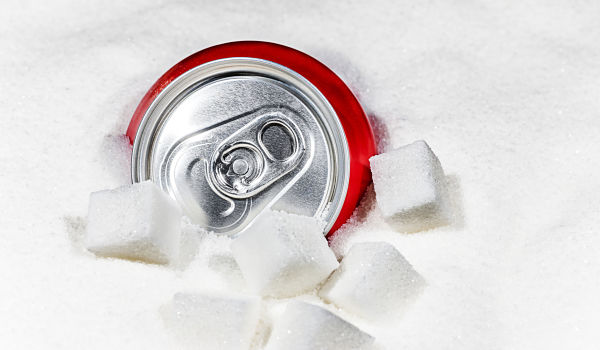Pressure continues to mount on two major convenience sales drivers – beverages and tobacco – amid talks of tax hikes on both categories.
Debate as to whether or not the Australian government should introduce a ‘sugar tax’, in an effort to curb obesity, resurfaced earlier this week after Victorian Liberal MP Russell Broadbent labelled sugar “a major trauma” for Australia.
Mr Broadbent challenged his colleagues to consider implementing the measure, calling for a 10 per cent wholesale tax, with the funds to be used to pay for sporting facilities.
The proposal was subsequently dismissed by Nationals leader and Deputy Prime Minister, Barnaby Joyce, who said on Radio National: “We believe that the sugar industry is an incredible strong industry especially for the development of North Queensland. This idea has been floated in other areas but we do not support a sugar tax.
“I’m always reticent to believe that a tax is the cure for anything,” he said.
In June, the Greens proposed a flat 20 per cent tax to be paid by producers or importers of water-based beverages with more than five grams of sugar per 100ml, based on the product’s retail price, claiming the tax would raise around $500 million per year.
The Greens’ bid followed a similar legislation passed in the UK earlier this year. In March, the UK Government introduced a soft drinks industry levy to be paid by producers and importers of soft drinks that contain added sugar from April 2018.
Under the UK legislation, the levy will be charged on drinks according to their total sugar content, with a main rate charge for drink above 5 grams of sugar per 100 millilitres and a higher rate for drinks with more than 8 grams of sugar per 100 millilitres. Under the provisions, smaller operators will be exempt from the tax.
AACS: Sugar tax will push consumers to supermarkets
Jeff Rogut, CEO of the Australasian Association of Convenience Stores (AACS), said a potential sugar tax would present a number of challenges for small business, including convenience stores, which are less able to absorb the additional costs than the major supermarkets.
“The additional price pressure will almost certainly result in reduced sales for convenience stores as consumers shift their purchasing habits to making bulk purchases from the major supermarkets,” Mr Rogut said.
Horticulture organisation AUSVEG also weighed in on the debate this week, saying revenue from a tax on sugar heavy water-based drinks could be used to fund public health campaigns to fight Australia’s ongoing obesity epidemic.
“The revenue raised from a tax on sugar heavy water-based drinks could provide funding for large scale, long term public health campaigns to help fight the obesity epidemic, to encourage Australians to make healthier choices,” AUSVEG CEO Simon Bolles, said.
International taxes fizzle
Mr Rogut says overseas examples of similar taxes have proved that “discriminatory taxes don’t work”.
In 2011, Denmark introduced a ‘fat tax’ in an effort to limit the population’s intake of fatty foods, however, the tax was scrapped by the government a year later and plans to introduce a sugar tax were also cancelled.
“In Australia, we should heed the lessons of real life examples like this and not blindly follow the UK in introducing similar unproven taxation measures simply to ‘keep up’,” Mr Rogut said.
“The only available evidence suggests that education, potentially in the form of wellness and awareness programs, is the most effective way to achieve improved health outcomes.”
Mr Rogut says some retailers and suppliers within the industry have already taken action to improve the health profile of their products and others continue to develop healthier alternatives; such as placing a greater focus on coffee and fresh on-the-go food including sandwiches and fruit.
“Sales of carbonated sugar beverages are flat whereas water and other healthier alternatives are already seeing growth,” he said.
Tobacco excise passes in parliament
Renewed talks of a sugar tax come as another crucial sales category for convenience continues to be faced with excise.
Last week bipartisan legislation to increase the tax on cigarettes in Australia by 12.5 per cent over the next four years was passed in parliament and will now move through to the Senate.
The first increase is set to occur on September 1, 2017, and could see a packet of cigarettes be as much as $40 by 2020.
Tobacco is the convenience industry’s largest product segment, comprising around 37.6 per cent of all P&C sales in 2015, according to the AACS State of the Industry report.
Sign up to C&I’s free bi-weekly newsletter here to receive the latest industry news every Tuesday and Thursday. Follow C&I on Facebook, Twitter and Linkedin.

